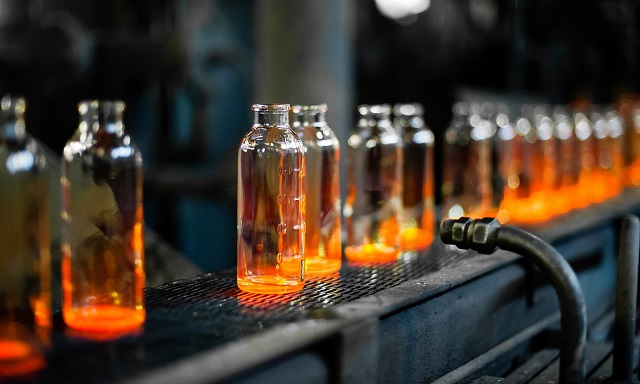The Use of Glass Bottles and Its Impact on the Environment
Post time: Sep-21-2023
The debate over the environmental impact of packaging materials continues to gain momentum as we seek sustainable solutions for our modern world. Glass bottles, often praised for their perceived eco-friendliness, are commonly used for beverages, cosmetics, and food products. However, it's important to examine the true environmental implications of glass bottles to make informed choices about our packaging preferences.

The Benefits of Glass
Glass has long been celebrated for its attributes that seem environmentally friendly. It is 100% recyclable, non-toxic, and does not release harmful chemicals into its contents. These qualities have led many to believe that glass is a superior choice for packaging when compared to plastic.
Energy-Intensive Production
One of the significant downsides of glass bottles is their energy-intensive manufacturing process. The production of glass involves heating raw materials, such as silica, soda ash, and limestone, to extremely high temperatures, consuming substantial amounts of energy. This not only contributes to greenhouse gas emissions but also depletes finite resources like natural gas, which is used as a fuel in the manufacturing process.
Weight and Transportation
Glass bottles are substantially heavier than plastic counterparts. This difference in weight has a cascading effect on transportation costs and emissions. More energy is needed to transport glass bottles due to their weight, leading to increased fuel consumption and higher greenhouse gas emissions. Plastic bottles, being much lighter, are more efficient in terms of energy use during transportation.
Recycling Challenges
While glass bottles are indeed recyclable, the recycling process for glass can be inefficient and costly. Sorting, collecting, and processing glass requires a substantial amount of energy and resources. Moreover, the market for recycled glass can be limited, which means that not all glass containers end up being recycled. A significant portion of glass waste still finds its way to landfills.
Durability and Breakage
Glass bottles are fragile and prone to breakage, which can lead to wastage during transportation, handling, or use. The need for thicker packaging and protective measures to prevent breakage adds to their environmental impact. In contrast, plastic bottles are lightweight and durable, reducing the likelihood of damage and minimizing waste.
Resource Extraction
The extraction of raw materials for glass production can have environmental consequences. Mining or quarrying activities for sand, soda ash, and limestone can result in habitat disruption and land degradation. While plastic is derived from petroleum or natural gas, the impact of resource extraction for plastic production is more concentrated and localized compared to the widespread impact of glass raw material extraction.
In conclusion, while glass bottles offer certain advantages such as recyclability and non-toxic properties, they are not without their environmental drawbacks. The energy-intensive production process, transportation inefficiencies, recycling challenges, and resource-intensive raw material extraction contribute to a larger environmental impact than one might expect.
This does not mean that plastic is a better alternative, as plastic has its own set of environmental issues, notably plastic pollution. Instead, it underscores the importance of considering the complete life cycle of packaging materials when assessing their environmental impact.
To make sustainable choices, consumers, businesses, and policymakers must weigh the pros and cons of various packaging materials and prioritize overall reduction in consumption, improved recycling systems, and the development of innovative, eco-friendly packaging solutions. Ultimately, our collective efforts can lead us towards a more sustainable and environmentally responsible future.
